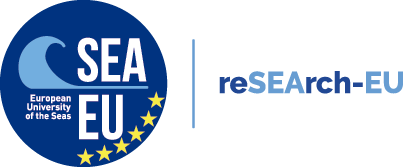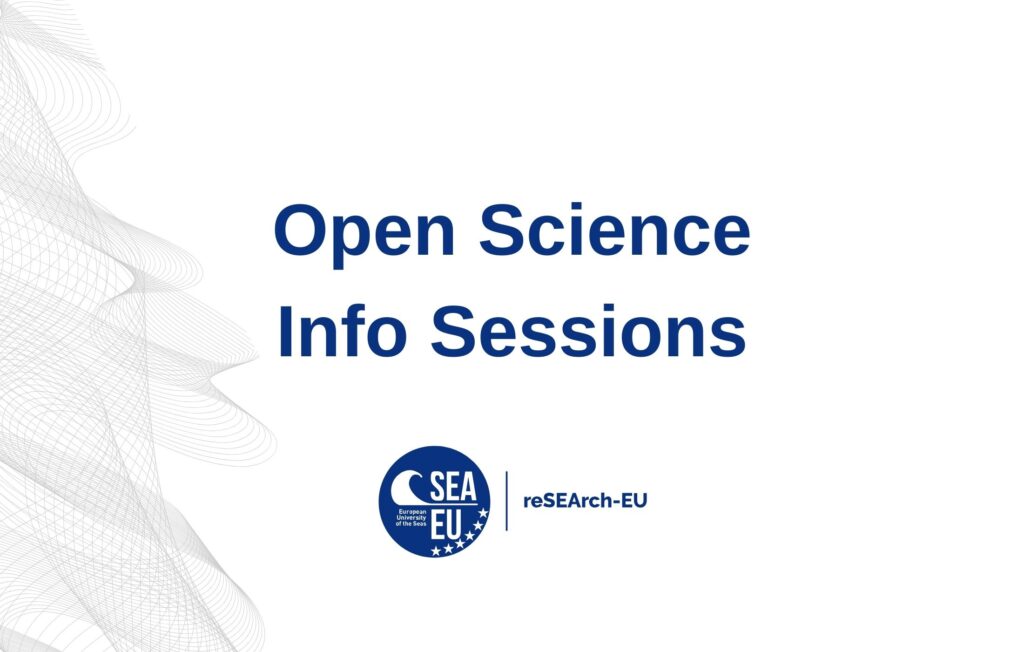As part of their effort for dissemination open science concepts and practices across the research communities of the SEA-EU Alliance, the Open Science Ambassadors appointed at every University of the consortium are organizing a series of informative sessions, some of which will be made publicly available through the YouTube Channel of the European University of the Seas and this webpage.
Open Science session in University of Gdańsk
OPEN-SCIENCE-DAY_KosakowskaOpen Science info session held at the University of Cadiz (29 November 2022)
This virtual informative session intended to promote understanding and awareness of the main concepts in relation to open science (e.g., open access, open data, etc.) within the research community of the University of Cadiz. Furthermore, it aimed at shedding light on the advantages of incorporating open science practices into research projects for both the international scientific community and individual scientists.
You can check the presentation below:
Open Science training in Split (20 June 2022)
Ivan Buljian, Open Science Ambassador at the University of Split, delivered a presentation for his university’s academic community to be introduced in the main concepts and the rationale of open science, the meaning and implications of the FAIR principles (findability, accessibility, inter-operability and re-usability), as well as the potential advantages that a widespread adoption of open science practices may bring to the world scientific community.
You can read the report about the session and check his presentation below:
reSEArch-EU-info-session-SplitOpen Science training in the University of Bretagne Occidentale (May 2022)
SEA_EU_2022-04-reSEArchEU-Info-session-Open-Science-Enregistrement-automatiqueSEA-EU lecture on Open Science: theory and practice (27 April 2022) – University of Malta
At the first info session on open science, Dr Ritienne Gauci (University of Malta) addressed the main concepts and theories in open science, as well as the principles which make open science useful for scientific communities across the world.
You can read a full account of the session clicking here. The event was recorded and can be watched below:

